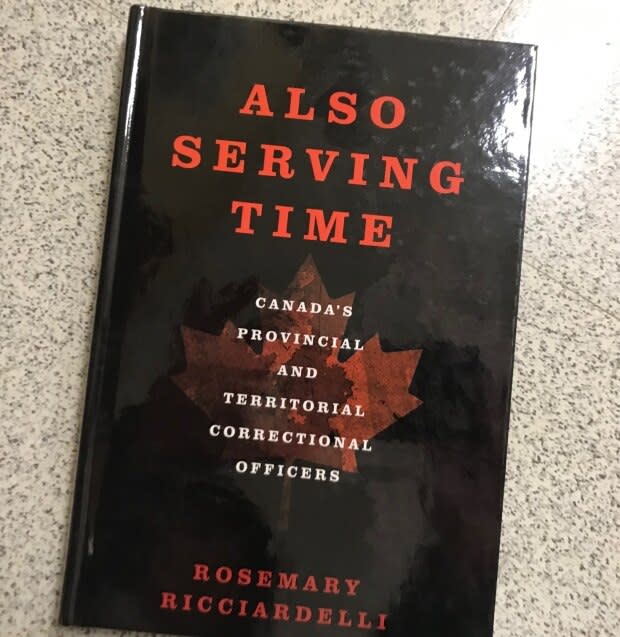Also Serving Time: MUN prof's new book about jails focuses on correctional officers
A Memorial University sociology professor's new book about the realities of working in Canada's provincial and territorial jails — including Her Majesty's Penitentiary — suggests correctional officers face stresses similar to the ones inmates do.
Rosemary Ricciardelli wrote Also Serving Time: Canada's Provincial and Territorial Correctional Officers based on 100 interviews with correctional officers across Canada, focusing on the risk and unpredictability of the job, as well as what it means to the officers to work in corrections, the motivation for entering the career field, and differences between working with females versus males.
"Corrections officers work and live in a space. Their working space is constantly unpredictable. They don't know what is going to happen," Ricciardelli told CBC Radio's St. John's Morning Show.
Ricciardelli said the idea for the book came from a Thanksgiving dinner she attended a parole house in Toronto. Former prisoners were discussing the difficulties and challenges they had endured during remand time, a period of incarceration prior to trial.
At the dinner table, Ricciardelli said, former prisoners drew the conclusion that prison staff, too, face high amounts of stress.

Ricciardelli said there were a lot of positive stories shared that day, not just negative.
"I think too often, we look at corrections, and focus on the negative stories," she said.
"The hundred in the book, a quick scan of the word 'suicide' brought up a sample of 49 individuals who all spoke of a life they saved inside, and I have yet to talk to a correctional officer that doesn't talk to me about an experience where they have been part of ensuring that someone made it to the next day."
Mental health role
Public policy researcher and former layer Colleen Hanrahan said corrections officers have a big role to play, not only in keeping order inside prison walls, but also in rehabilitation and mental health services.
"Our prisons have become the new asylums in our society, whether we want to accept it or not," said Hanrahan, also an adjunct professor at MUN.
According to Hanrahan the requirements to become a correctional officer today are a high school education and then a six-week training program delivered by the Department of Justice and Public Safety.
She added that while there is a mental health component to the program, the main focus is on how to maintain control and manage inmates in the prison.

"Whatever practices are in place they're learning from the people who have been doing it over the years, and then the question is, how do you introduce new concepts like mental health?" she said.
"There's a high incidence of people with mental illness and mental health issues, addictions. So how does someone who's not trained to deal with that, deal with that?"
Ricciardelli said corrections is a challenging experience for those who choose to do it.
The role is care, custody and control, she said, meaning that it's the officer's job to serve a population held against its will but legally mandated to be there, while also being responsible to apply consequences for negative actions.
"But they're also responsible to help people with re-entry.… Even a federal sentence, a federal sentence of three years, means a person is out in a year potentially on parole. So people aren't gone for these extended periods of time," Ricciardelli said.
"So part of their job is to prepare people for re-entry."
Ricciardelli said Also Serving Time also focuses on seldom-heard stories from officers' perspectives.
"I just hope it gives some insight into the nuances of the job, because it's not a job that's front and centre in public attention," she said.
Read more from CBC Newfoundland and Labrador

